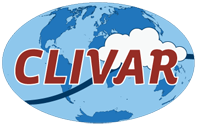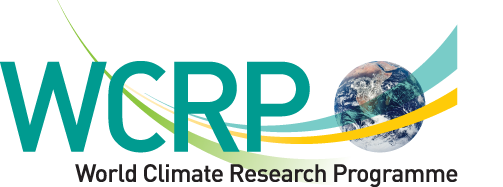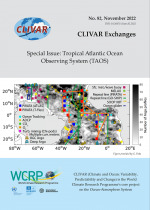Workshop on Evaluating the ocean component of IPCC-class climate models
Princeton, USA
Wednesday, 16 June, 2004 - Friday, 18 June, 2004
The CLIVAR Working Group on Ocean Model Development (WGOMD) organised a workshop at the NOAA Geophysical Fluid Dynamics Lab (GFDL) in Princeton USA on June 16-18 2004. About 100 experts in ocean modelling attended the workshop, which was hosted by Stephen Griffies of GFDL.
Motivation
The main goal of the workshop was to facilitate a dialogue between modellers, theorists, and observationalists on the physical integrity of a new class of high-end global ocean models, with the particular aim to articulate how best to move forward over the next decade to improve simulation realism. These new models have been developed over the past few years largely in response to the requirements of the 4th IPCC Assessment Report (AR4) due for publication in 2006. For many climate laboratories, the recent model development efforts were unprecedented in their intensity and scope.
Workshop Speakers and Presentations
Session A: State of the art in ocean climate models for IPCC (Facilitator: Peter Gent)
|
Peter Gent |
Overview of IPCC ocean models |
|
|
TBD |
Physics and model grids used by the IPCC models |
|
|
Anthony Rosati |
How well do ocean models simulate the tropics? |
|
|
Roberts |
How well do some IPCC-class models represent the mean THC? |
|
|
Rainer Bleck |
Can isopycnal ocean models be used for climate? |
|
|
Proshutinsky |
Lessons Learned in AOMIP |
|
|
Giulio Boccaletti |
The Heatfunction |
|
|
Siobhan O'Farrell |
CSIRO Presentation at CLIVAR/WGOMD |
|
|
Bill Merryfield |
Anisotropic horizontal viscosity of Large et al. (2001) |
Session B: Ocean model intercomparison project (Facilitator: Anne Marie Treguier)
|
William Large |
The NCAR/GFDL Collaboration |
|
|
Ruediger Gerdes |
Reaction of the oceanic circulation to incereased melt water flux from Greenland as an OMIP testcase? |
|
|
Winton |
Sensitivity of fluxes to the bulk formulae |
|
|
Johann Junclaus |
OMIP experiments with two z-coordinate models at MPI and IfM-GEOMAR |
|
|
Bryan |
The Pilot Ocean Model Intercomparison Project (POMIP) |
Session C: Key physical processes (Facilitator: Sonya Legg and Raffaele Ferrari)
|
Sonya Legg |
Overflows and gravity currents |
|
|
Raffaele Ferrari |
Eddy-surface mixed layer interactions |
|
|
Anne-Marie Treguier |
Mesoscale eddies and mixed layer interactions |
|
|
Claus Boening |
Open ocean deep convection |
|
|
Louis St. Laurent |
Abyssal and tidal mixing processes |
|
|
Martin Visbeck |
Discussion on ventilation processes in the thermocline |
|
|
Paul Schopf |
Tropical Mixing |
Session D: Future directions (Facilitator: Alistair Adcroft)
|
Robert Hallberg |
Ocean modeling environments and frameworks |
|
|
David Marshall |
Finite element methods and adaptive meshes |
|
|
Stephen Rintoul |
Observations to help constrain the models |
|
|
Eric Chassignet |
Operational oceanography in the context of global ocean-atmosphere modeling |
|
|
Hans von Storch |
Coastal ocean model applications that serve the needs of the coastal impacts community |
|
|
Eli Tziperman |
Adjoint-based tools for understanding the ocean |
|
|
Heimbach |
MITgcm ADM and TLM via automatic differentiation |
|
|
Gebbie |
How is the model constrained to observations? |













